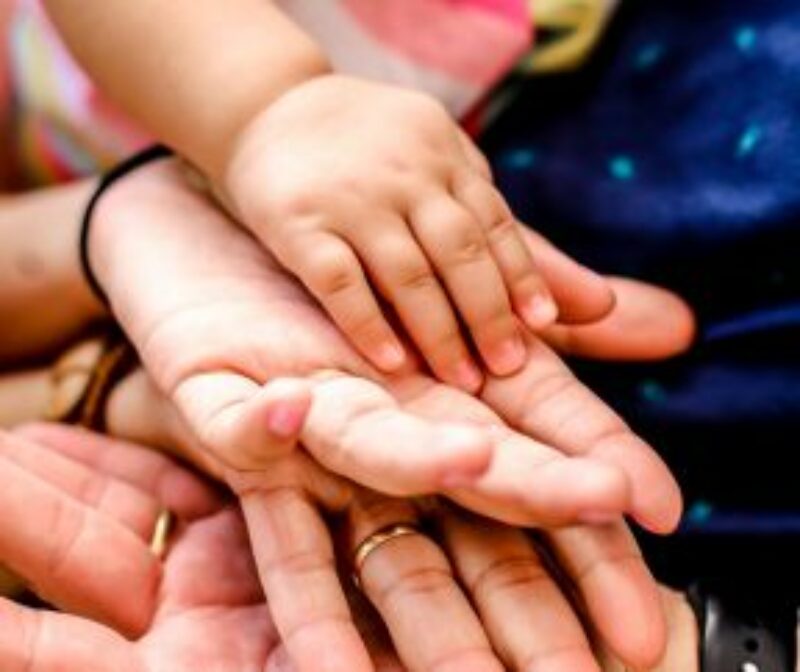“The peace of self is dependent on the peace of the other.” -Lisa Sharon Harper, The Very Good Gospel: How Everything Wrong Can Be Made Right
Regardless of your own faith background, whether you wholeheartedly embrace your faith community or passively partake in it, you may find yourself wrestling with what’s most important to look for when finding a faith community, especially as you consider the needs of your children as they grow and develop. If we know one thing about young people, it’s that they never have a shortage of questions. During adolescent development, there is an immense amount of cognitive growth where they are developing more abstract reasoning abilities and searching for ways to create meaning and order. Adolescents are exposed to a variety of beliefs, values, and roles, and they begin to ask existential questions and search for purpose (Damon et al., 2003; Mariano & Damon, 2008; Markstrom, 1999). Young people are also more connected to their peers through social media than ever before. They have instant access to a plethora of beliefs, doctrines and worldviews—some of which are edifying and helpful for their development, others that can lead them into a malaise of questioning, doubt, and isolation. These competing narratives leave youth with a need for deeper, formative practices to ground their beliefs in their day to day. Questions are a wonderful thing, but questions for young people eventually need to land somewhere consistent.
Our Kids Need a (Safe) Ideological Landing Pad
Participating in religious groups can provide adolescents a consistent and coherent worldview, helping to solidify ideology, which is essential to identity formation (Damon, 1983; Erikson, 1968). Faith communities can offer beliefs and moral codes that provide structure for adolescents to implement. It can be a terrifying thing as a parent to consider entrusting your child’s development to a community. Children are inherently curious and as they develop, it’s important to help them channel that curiosity towards meaningful questions with meaningful answers. These questions when explored in a community can find a place to land, providing them with a path forward as opposed to leaving them to figure things out on their own. Carefully consider the ideology and beliefs that are present in a community you consider. Make sure there is an openness toward questions, so that youth can bounce ideas off of caring adults.
During the play years in young kids’ lives, autobiographical memories are formed, leading to the construction of a coherent identity in adolescence (Balswick et al., 2016). These memories stick with kids for the rest of their lives. Finding a community that embraces curiosity is a necessity for the reciprocating self. The safety young people feel in community can contribute to positive autobiographical memories that are then encoded for a lifetime (Balswick et al., 2016). During this time, kids are learning what it means to be self-conscious as they begin to be able to consider what others think of them (Balswick et al., 2016). Guilt, pride and shame are all emotions that young people are cultivating during the early formative years of their lives (Balswick et al., 2016). Not all spiritual communities espouse an ideology that contributes to a positive conceptualization of self. Shame is the idea that you’ve done something wrong in the eyes of others. Shame-based communities are often those that perpetuate fear or fail to create space to cultivate curiosity.
Our Kids Need a Community of Good Examples
Ideological development cannot be separated from social interactions. If young people are asking lots of questions (and they are), they need people who are safe to ask these questions and bounce ideas off. Intergenerational relationships, often available in healthy faith communities, offer young people a unique security to explore their questions, while connecting them with someone who has more life experiences to draw from. “Spiritual modeling” allows youth to see how other people of faith are putting their beliefs into practice in real time. This is why choosing a good community can begin to feel like such a daunting task as a parent. But faith is observed through living amongst other believers (in other words, it seems to be both caught and taught).
Ideology within a community provides grounding and examples of how to live. Being immersed in a community where spiritual and intellectual curiosity is welcomed and embraced provides a platform for young people to find their footing. The purpose of community is not to provide answers, but to meet their curiosity with a willingness to listen and explore an idea or challenge together. A healthy faith community can offer young people agency, creating space for young people to take ownership of their spiritual journey in the context of community. This is the ideal.
We know there is no such thing as a perfect church community for your kids, but a church that meets young people in their curiosities and affirms their inherent belonging is a very good place to start.
Questions to consider when looking at a church’s culture:
- How does the church respond to issues of social justice in your community?
- How does your church respond when hard questions are asked?
- Does your church embrace doubt (or is it shameful)?
- How open are the adults in your congregation?
- Are adults open to fostering mentorship relationships with young people?
- What forums already exist for intergenerational communities to form?
- Is individuality encouraged and celebrated or is there a culture of conformity?
- Is the development of diverse gifts and strengths promoted?
Click here for a PDF to help you understand the various resources available from religion and spirituality.
Continue Exploring

Youth
Kids and Community (Part 2): Adolescents and the Value of Loving Relationships that Display a Loving God
Why do kids need a community that models love, and what does emotional safety have to do with it. Part 2 of a 3-part series.

Youth
Kids and Community (Part 3): How Can We Keep Kids in Church?
How do we keep young people engaged in church? This is part 3 of a 3-part series.

Blog
Mindful Parenting: The Importance of Creating Space from Within
Dr. Joey Fung emphasizes the importance of mindful parenting and how parents can thrive during this pandemic.
